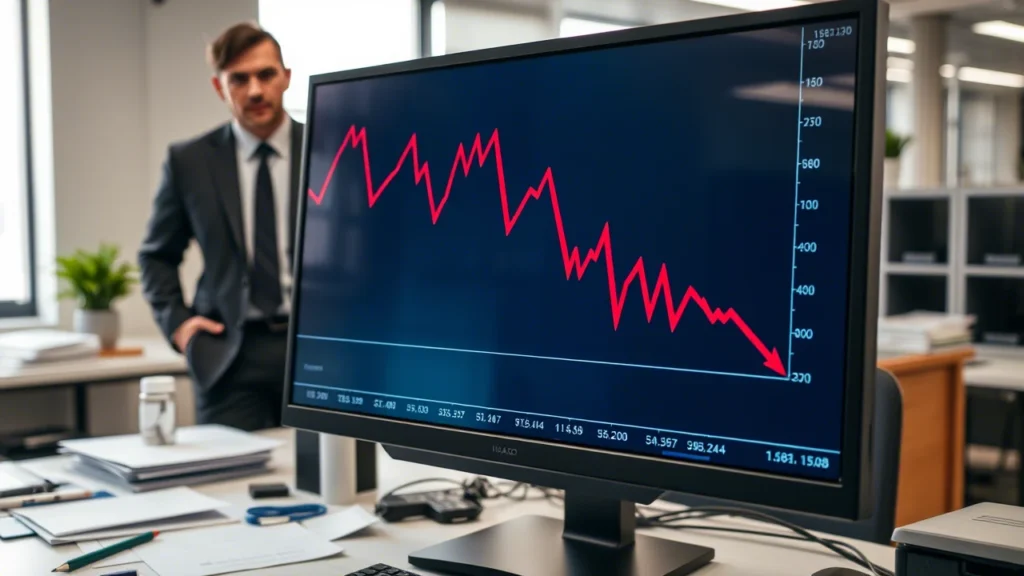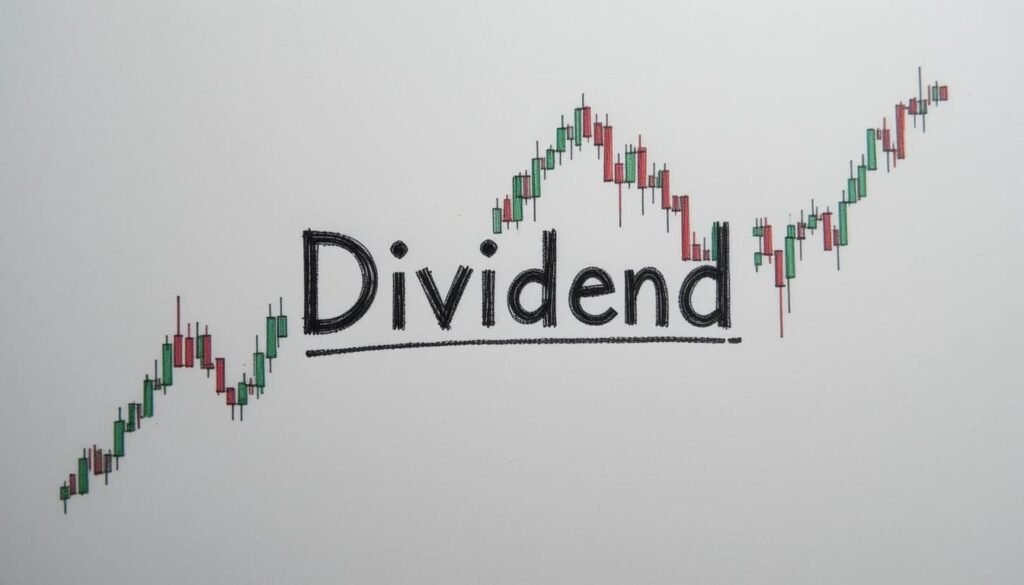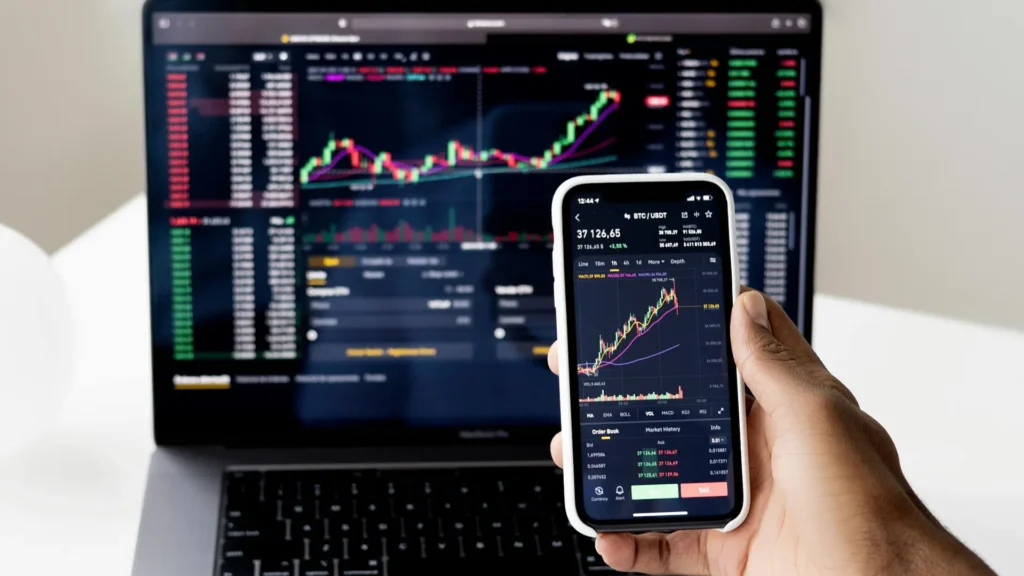You check your portfolio. Stocks are down. The headlines scream one word: Recession. Suddenly, you feel your chest tighten. Fear kicks in. You wonder if you should sell everything. You ask yourself, “Am I about to lose it all?”
That panic? That’s what wipes out years of growth for most people. But here’s the truth: you don’t have to fall into that trap. You don’t need to panic. What you need is clarity.
What really happens to stocks during a recession? Why do some investors lose their shirts while others grow their wealth quietly?
Most people guess. This article gives you answers. Clear. Simple. Focused on what matters. Keep reading, because what you’ll learn next might flip your view of investing during recessions forever.
Why Stocks React So Fast When a Recession Hits
A recession starts when the economy slows down for at least six months. That means people are buying less, businesses earn less, and jobs are cut. But stocks don’t wait for the data. They move before anyone says the word “recession” out loud.
Here’s why stocks fall fast:
1. Investors hate uncertainty.
When growth slows, people get nervous. They don’t know how bad it will get or how long it will last. That fear triggers selling.
2. Companies make less money.
If businesses can’t sell as much, profits shrink. Stock prices follow profits. When profits go down, so do prices.
3. The future looks cloudy.
Stocks are bets on the future. During a recession, no one knows what’s coming next. That makes investors cautious. They start pulling their money out.
4. Short-term traders rush to exit.
When the market drops, many traders sell fast to avoid more loss. That speeds up the fall.
This chain reaction happens every time. But this is just the setup. The biggest mistake isn’t the recession. It’s what people do because of it.
The Big Drop: When Stock Prices Start Free-Falling
Once investors sense trouble, selling begins. But here’s the shocker—markets usually crash before the real pain shows up in the economy. That means the job losses, bankruptcies, and budget cuts usually happen after the stock market has already fallen.
Why?
Because the stock market tries to guess the future. If people think company earnings will drop six months from now, they’ll sell today.
Here’s what tends to fall first:
If families start saving money, they spend less on shopping, restaurants, and travel. Businesses in those sectors get hit early.
Smaller companies don’t have big cash reserves. They get crushed when sales drop or loans get tighter.
In recessions, banks get worried. People stop paying loans. Credit tightens. The value of financial stocks goes down.
Companies that rely on future earnings lose investor support fast. People want safer bets when the economy is shaky.
But the worst pain isn’t the price drop—it’s the panic. Investors see red numbers. They imagine everything will keep falling. They sell more. That fear cycle is brutal.
And here’s where everything flips.
At the bottom of every crash, one thing happens: panic hits its peak. You see headlines filled with fear. TV analysts talk about collapse. Social media says, “This is it. We’re doomed.”
This is where people make their biggest mistake.
They sell.
Not because they’ve thought it through. Not because they have a plan. But because they’re scared.
They can’t sleep. They feel sick. So they hit “sell.” They tell themselves they’ll buy back later, when things are “safe.”
But guess what?
The bottom is where smart investors start buying. The big names. The ones with cash. The patient ones. They see lower prices as opportunity—not disaster.
This moment—when fear is loudest—is usually when stocks are cheapest.
Let that sink in. The biggest wealth-building moments often happen during the worst headlines.
Most people miss that moment because they’re focused on how bad things feel.
Why Stocks Recover Before The Economy Does
Here’s something people don’t expect: stocks recover long before the economy shows any signs of healing.
Let’s break this down.
Say the economy is still bad. Unemployment is high. Businesses are closing. But the market suddenly starts going up.
How is that possible?
Because intelligent investors start seeing light at the end of the tunnel. They don’t wait for perfect news. They react to any sign that things might stop getting worse.
Maybe inflation is slowing. Maybe layoffs are easing. Maybe the government starts cutting interest rates.
When that happens, investors jump in early. Stock prices rise while the news is still gloomy.
That’s why waiting for a full economic recovery before investing doesn’t work. By the time the good news is official, stock prices have already gone up.
And that’s where smart investors win again.
How Recessions Have Affected the Market in the Past
Let’s look at history. It shows a clear pattern.
2008 Recession (Global Financial Crisis)
The S&P 500 dropped more than 50%. Panic was everywhere. But from March 2009, the market began a long, strong recovery. People who stayed invested saw huge gains.
2020 COVID Crash
Stocks dropped fast. The world shut down. But just two months later, stocks started climbing again—even though the pandemic wasn’t over.
2000 Dot-Com Bust
Tech stocks crashed. The market dropped for years. But patient investors who bought strong companies and held on saw massive growth by the mid-2000s.
Each time, the same story repeats:
- Fear rises.
- Prices fall.
- Panic spreads.
- Smart money buys.
- Recovery begins.
Don’t think this only applies to millionaires or professionals. Anyone who stays calm, follows a plan, and keeps investing wins in the long run.
Your Game Plan: What To Do With Your Stocks During a Recession
Now that you understand the pattern, what should you actually do when a recession hits?
Sell your stock when you see the danger signal, don’t sell at the bottom.
Selling when prices are low turns paper losses into real losses. History proves that markets recover. But you have to stay in the game to benefit.
Recessions are when stocks go on sale. Keep investing monthly, even if it feels scary. You’ll buy more shares at cheaper prices.
This is called “dollar-cost averaging,” and it helps smooth out your risk.
Look for businesses with cash, real profits, and low debt. These companies survive downturns and grow stronger after.
Having cash helps you avoid selling during a crash. It also gives you the option to buy more when others are fearful.
News stories will try to scare you. That’s their job. Your job is to follow your plan and not react emotionally.
Always look at the long term. One year of losses doesn’t ruin a 20-year investment journey. The best gains happen after the worst drops.
Recession is not the enemy. Emotion is.
What If You’re Just Getting Started in a Recession?
If you’re new to investing and a recession hits, you’re actually in a powerful position.
Why?
Because prices are low. You’re starting during a downturn, which means future growth is more likely.
Don’t wait. Start now, with small amounts. Learn as you go. Stick to strong companies or index funds. Let time do the heavy lifting.
Think of it this way:
- If you start investing during a boom, you buy expensive shares.
- If you start during a bust, you buy them cheap.
Guess which one leads to better long-term gains?
Recessions scare people because they don’t understand them. But you’re not most people anymore.
Now you know the truth.
Stock markets drop before recessions are official. They bottom out when fear is highest. And they recover long before the economy feels good again.
Most people sell low and buy high. Smart investors do the opposite.
You don’t need to guess. You don’t need to time the market. You just need to:
- Stay calm
- Keep investing
- Focus on value
- Think long-term
That’s the real secret to growing wealth through recessions.
So the next time the headlines scream “crash,” you won’t panic. You’ll remember this guide.
You’ll know what to do. You’ll be ready.
That’s how real wealth is built—in silence, through patience, during chaos.
And now? You’re ready to win that game.




